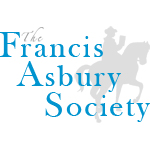Scripture reading: Galatians 5:16–26
Feeling Froggy?
Then the Lord God formed the man of dust from the ground and breathed into his nostrils the breath of life,
and the man became a living creature. (Gen. 2:7)
An amphibian can live in two environments. The word comes from the Greek root amphi, meaning “both sides of” and bios, meaning “life.” Thus an amphibian possesses two different kinds of life perfectly adapted to different kinds of environment. Frogs, for example, inhabit both land and water. This is simply amazing when you pause to think about it, but let me share something even more amazing: Humans are also “amphibians”! We too are equipped to live in two very different environments. And unlike the frog who does so sequentially (living first in water as a tadpole and then on land as an adult), we are able to do it simultaneously!
On the one hand we are earthlings made from dirt, like the animals in so many ways. We are “at home” here in this world. We fit. But on the other hand we are made in the image of our Creator (Gen. 1:26–27), and God has breathed into us his very breath (Spirit) (Gen. 2:7). In this respect, how unlike the animals we are! Though we live in the world, we instinctively know we are not quite of it. Our true citizenship lies elsewhere. This splendiferous mixture of matter and Spirit, dust and divinity, body and soul, earthiness and heavenliness, likeness to the animals and likeness to God . . . well, it makes my head spin. Yes, man is the quintessential amphibian.
Among all the religions and philosophies of the world, only in the Bible will you find a compelling explanation for man’s amazing greatness and nobility and his shocking bestiality and wickedness. The Genesis account is unique in helping us to understand why we humans are so wonderful and wise yet so evil and stupid, why we are so like God and at the same time so animalistic.
It is dangerous to explain too clearly to man how like he is to the animals without pointing out his greatness. It is also dangerous to make too much of his greatness without his vileness. It is still more dangerous to leave him in ignorance of both, but it is most valuable to represent both to him. (Pascal, Pensées)
Jesus Christ, the Second Adam, was the ultimate Amphibian. He too was a man of dust. But though he was the son of Mary, he was also the Son of God. In him the whole fullness of the Deity dwelt in bodily form (Col. 2:9). Unlike the first Adam and all his descendents, Jesus knew no sin. Thus in him we see the Human Person as it is meant to be . . . in all its amphibious glory! Behold, the Man! (John 19:5).
My fellow frogs, stop being frustrated by your amphibian nature and embrace the reality of who God created you to be. Give yourself completely to God, soul and body. Be imitators of Christ (Rom. 8:29; II Cor. 3:16–18; etc.). The blood of Calvary and the Spirit of Pentecost makes possible a full and abundant life here and now. So put off the old man with his deeds, and put on the new man which is being renewed in knowledge after the image of its creator (Col. 3:9–10).
Man is neither angel nor beast, and it is unfortunately the case
that anyone trying to act the angel acts the beast.—Blaise Pascal
point to ponder • God wants to redeem my body as well as my soul.
prayer focus • Someone who has forgotten they are made in the image of God.
